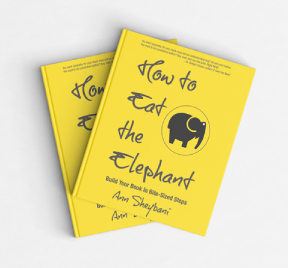Writing
Secret Agent Man
November 14, 2016
If, after writing your no-doubt best-selling book, you want to go the traditional publishing route, you’ll need to hire an agent to represent you.
Manuscripts sent directly to a publisher are called unsolicited submissions. They’re usually thrown away; unceremoniously returned in a self-addressed stamped envelope; or, if you’re lucky, tossed into a slush pile and read, eventually, by a bleary-eyed intern. Unsolicited submissions have a very low rate of acceptance, meaning you have a much better chance of winning your state’s Powerball.
How do you find an agent, you ask? Before the advent of the Internet, you could find one by browsing through The Writer’s Market—an annual catalog that listed agent names, contact information, and specialties. (The Writers’ Market is also an online subscription site.) You can now dig up the same information on Google, or in the back of trade magazines, like Poets and Writers.
Agents can also be tracked down at writers’ conferences, where they troll for new talent—writers with MFA’s, experienced authors, or that workshop participant everybody seems to be raving about. Many of these conferences facilitate private meetings between agents and attendees, during which the author is expected to pitch his project (give a brief, alluring description so as to make the agent drool, and beg to represent him).
Tracking down an agent isn’t the hard part, getting an agent to pay attention to you, well, that’s the trick. Even if you miss the chance to pitch in person, to wow her with your knowledge of Dostoevsky and your brilliant white teeth, you can still grab an agent’s interest through the query process.
A query is a special type of letter that tells an agent who you are, why you’re contacting her, what your book is about—in a paragraph or two—and why you think it would sell well in the current marketplace.
By the way, there are hundreds of books out there that can teach you how to write a proper query letter. Buy one, because it’s an art form. Plus, it’s always helpful to see examples of what to do, and what not to do. (You’d be astounded how stupid people can be!)
If an agent likes what she sees in the query letter, she may ask for a sample of your manuscript and a synopsis. A synopsis is a more detailed summary of your book, including a description of the major themes, which agents use to sell fiction to a publishing house.
If the agent likes your synopsis, if she suddenly thinks of the perfect publisher, or an editor who has bought that kind of book in the past, or has mentioned wanting something along those lines, she would want to contract with you to represent your book. (By the way, unless you want to piss off an agent, which makes no sense to me at all, don’t send her your whole manuscript until she asks for it.)
If you’ve written a non-fiction book, your agent will need you to produce a book proposal, even if you’ve already finished your manuscript. It’s not that agents enjoy being demanding and mean, although I’m sure some do, it’s just that publishing houses require book proposals from them before they’ll agree to a sale. A book proposal is a forty-or-so-page report that includes a description of the current market for such a book, the points of difference, the author’s expertise relative to the topic; a summary; and a sample chapter or two.
Putting together a book proposal is sort of like writing a master’s thesis about your book, only more gruesome. In other words, writing a compelling book proposal requires a hell of a lot of skill. If you’ve been asked to produce a book proposal, you’ll want to buy a good instructional book or ten on the subject to do the job right.
Mind you, some writers manage to sneak into big traditional publishing houses through the back door, meaning without an agent. This includes bloggers who’ve attracted large audiences; internet celebrities like Justin Halpern, who wrote Sh*t My Dad Says; the creators of Internet memes, like Angry Cat; retiring sports figures; instant celebrities, such as Snookie; and anyone a publisher feels could produce a book that will sell a lot of copies.
Of course, if you have a large enough platform—meaning a ready-made audience of 30,000 followers or so—a traditional publishing house would show some interest in you, too, with or without an agent. Don’t forget, their job is to make money. If you’re popular enough, it doesn’t matter if you write like a fourth grader. They can always assign you a ghostwriter.
Just so we can dispatch with any last shred of false hope, you could be the next best thing since J.K. Rowling, but if a house doesn’t know who you are, if they can’t see a viable market for anything you’ve written, they likely won’t give you the time of day.



